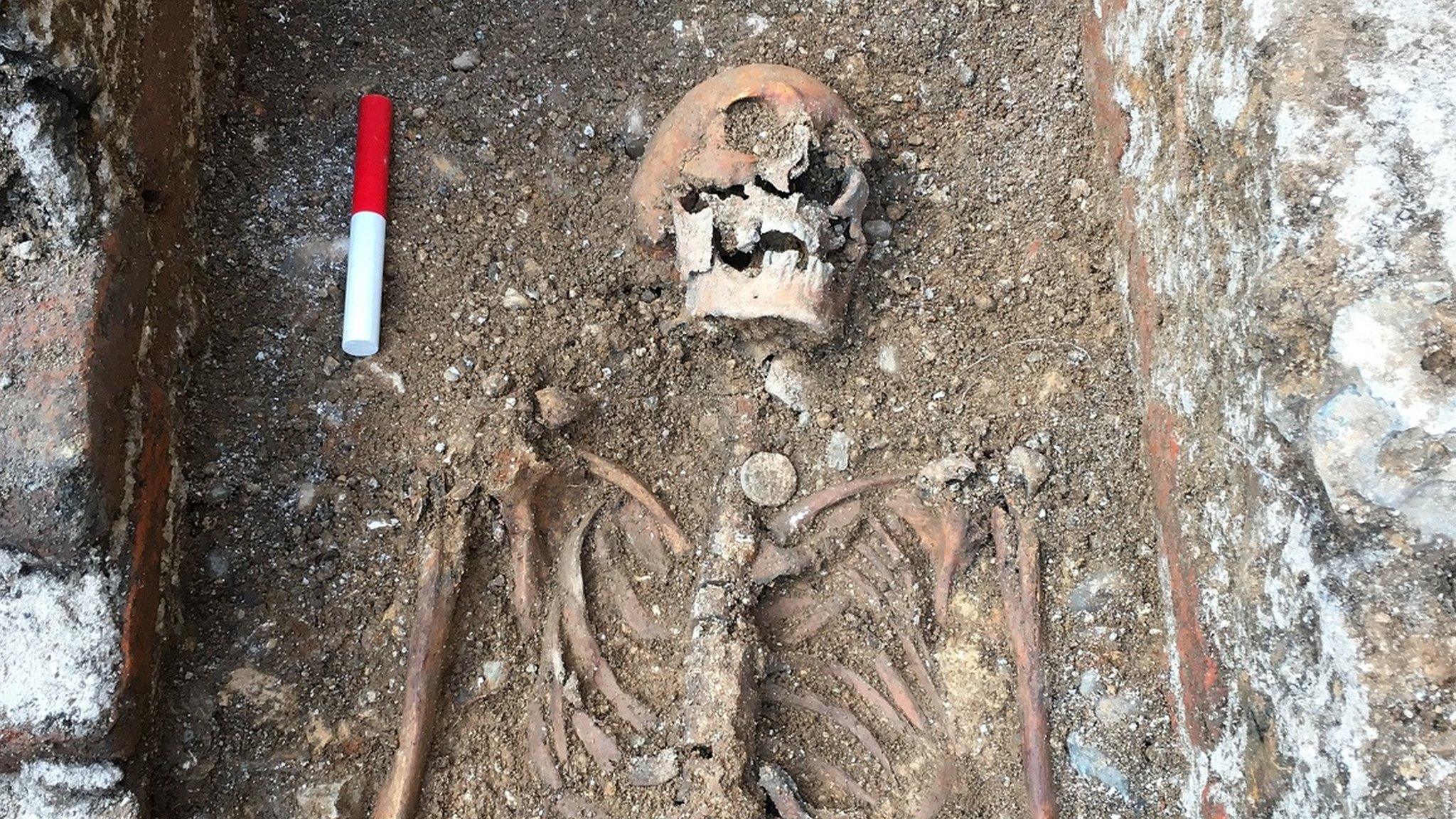St Albans Cathedral reveals reconstructed face of Abbot John
- Published
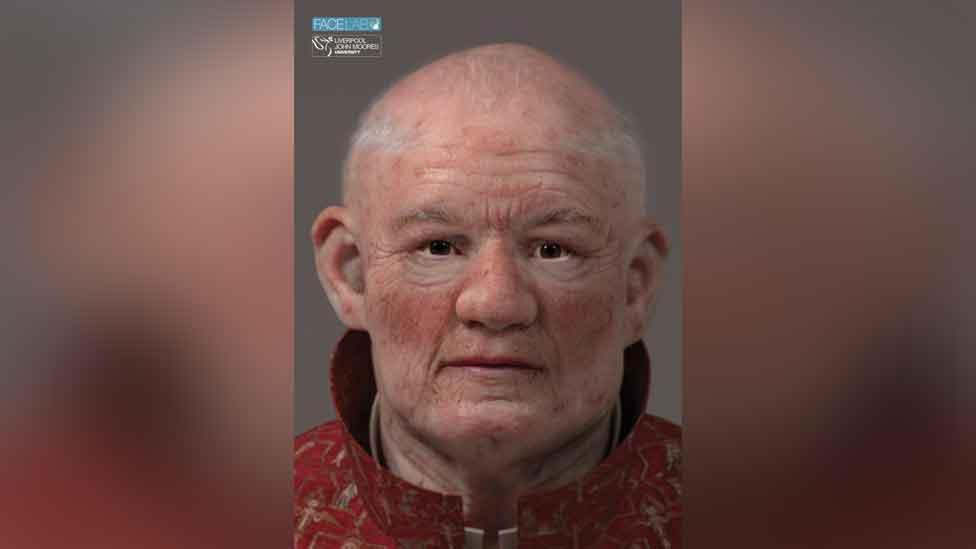
Abbot John was one of the most powerful ecclesiastical fixers of his day, according to the dean of St Albans the Very Rev Dr Jeffrey John
A facial reconstruction has depicted the "impish" features of a powerful churchman whose skeleton was dug up at St Albans Cathedral.
The remains, unearthed in 2017, were found to be those of Abbot John of Wheathampstead, who died in 1465.
Reconstructed by university experts, it is claimed to be the first face of a 15th Century figure to be revealed in this way since Richard III's in 2013.
Dean Dr Jeffrey John said the abbot had been brought "startlingly to life".
Dr John said the image "immediately invites us to read his character from his features".
"He has an impish look, but also looks like a man who was not to be trifled with - as befits one of the most powerful ecclesiastical fixers of his day," he said.
St Albans Cathedral stands on the site where Britain's first saint, St Alban, was martyred by the Romans and is the oldest place of continuous Christian worship in the country.
Abbot John's burial site remained undiscovered for centuries, until excavation work uncovered his remains.
His skeleton was unearthed along with three papal bulls - a type of public charter issued by a pontiff - that Pope Martin V had given him 40 years before, confirming the papal privileges he gained in 1423 - and providing the key to his identity.

Abbot John of Wheathampstead (c1390 - 1465)
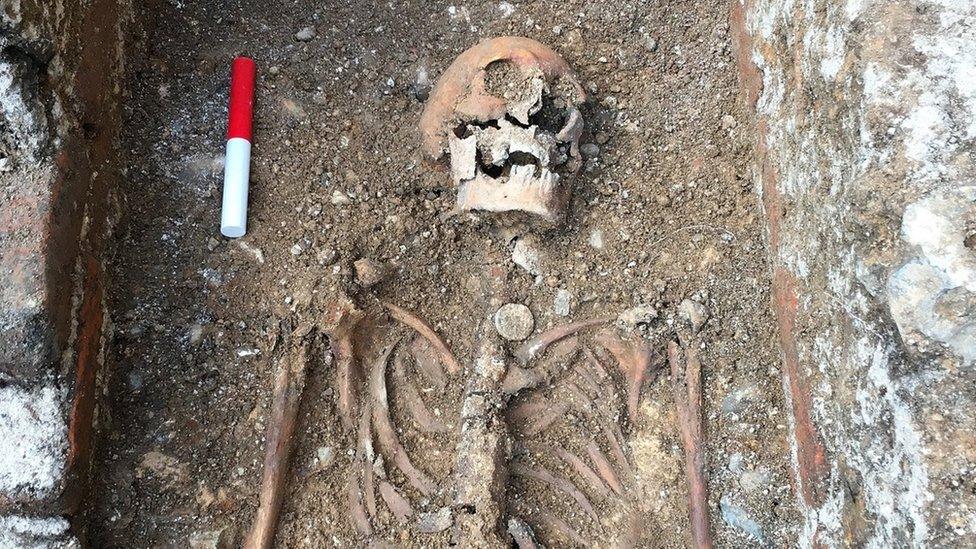
The remains of Abbot John were found during work to create a "welcome centre"
John of Wheathampstead was abbot at St Albans Cathedral twice, from 1420 to 1440 and from 1451 until his death in 1465
He was influential, introducing internal reforms, promoting the abbey's property interests and securing papal privileges
One of the leading Benedictine abbots in England, he represented the English clergy at international conferences, such as the one held in Pavia in 1423
Source: St Albans Cathedral

The reconstruction, funded by the Friends of St Albans Cathedral, was carried out by Prof Caroline Wilkinson from forensic reconstruction specialists FaceLab, based at Liverpool John Moores University.
Prof James Clark from Exeter University, one of those who supervised the work, said it was the "first accurate representation of a monastic figure in England before 1500".
Abbot John's body will be laid to rest again at St Albans Cathedral on a date yet to be confirmed.
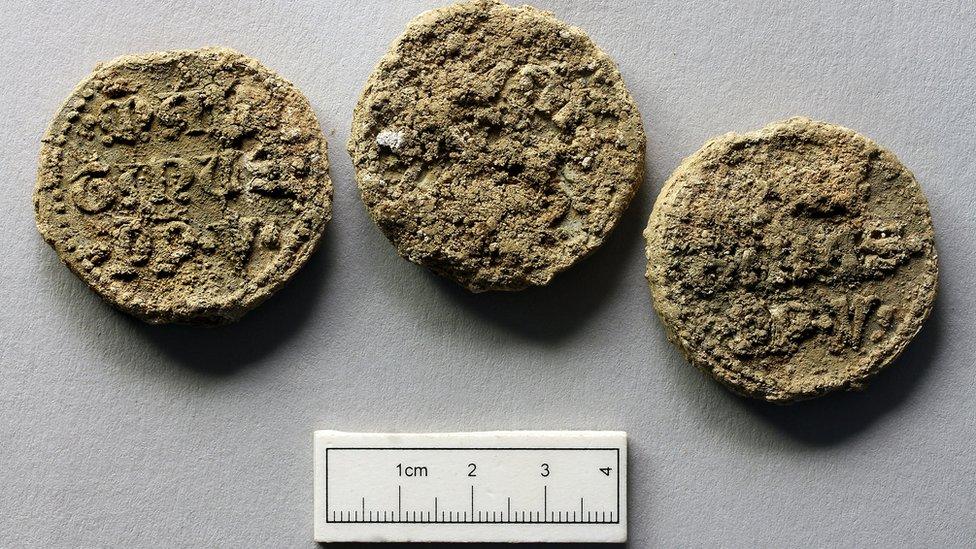
The three papal bulls found with the abbot's skeleton were issued by Pope Martin V, who was pontiff from 1417 to 1431

Find BBC News: East of England on Facebook, external, Instagram, external and Twitter, external. If you have a story suggestion email eastofenglandnews@bbc.co.uk, external
- Published22 June 2019
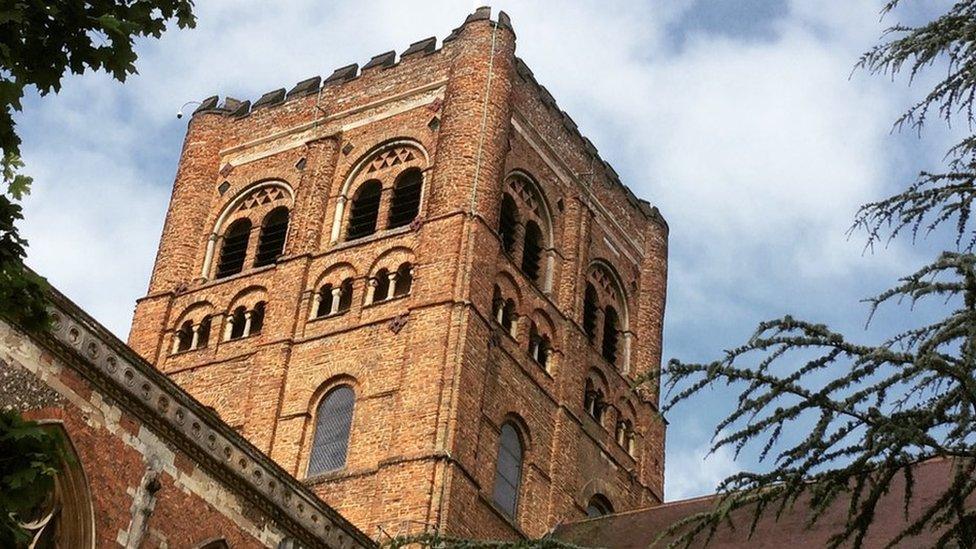
- Published7 December 2017
